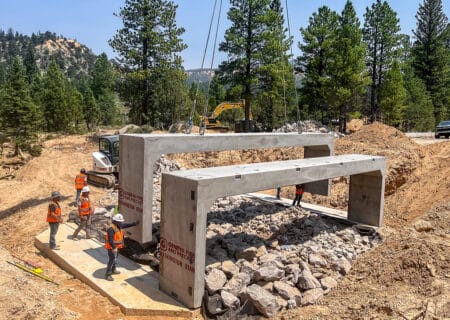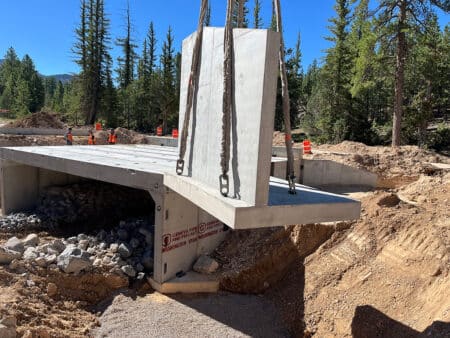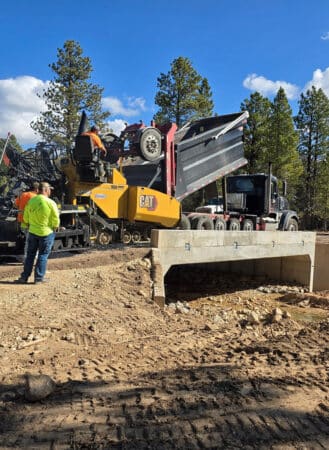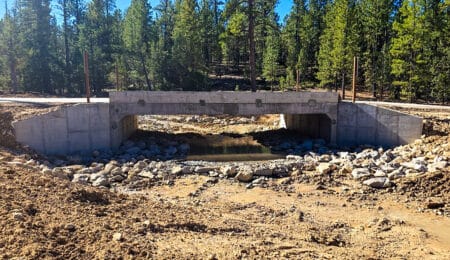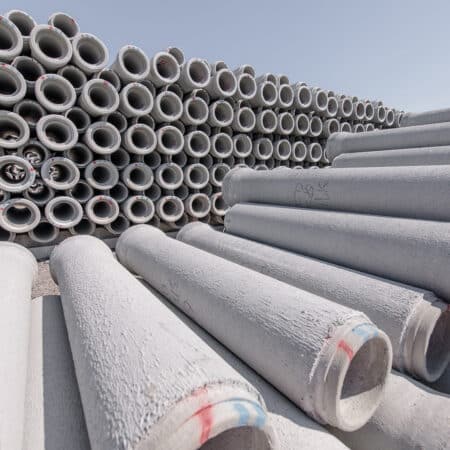Lower Clay Creek Bridge
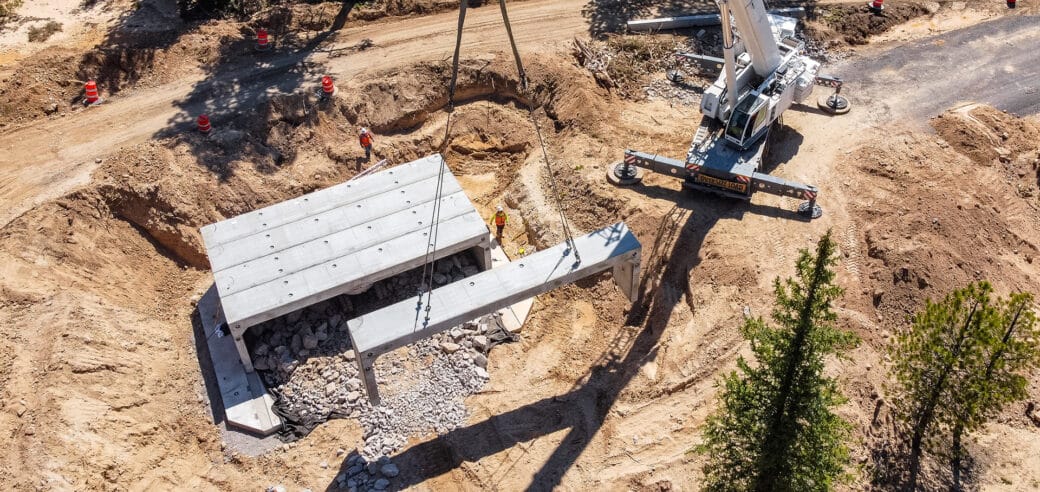
Specifications
Owner
Engineer
Contractor
The Lower Clay Creek Bridge project involves the construction of a new 34-foot span reinforced concrete bridge on Pine Lake Road, near Bryce Canyon in Utah’s Dixie National Forest. Managed by the U.S. Forest Service (USFS), the road provides public access to Pine Lake and Pine Lake Campground. The site previously relied on an undersized 48-inch culvert for drainage. The new structure expands drainage capacity while improving roadway safety and restoring native fish habitat in the stream below.
Precast reinforced concrete was selected over cast-in-place construction for its ease of installation, reduced construction time, and minimal impact to traffic. Geneva Pipe and Precast supplied approximately 250 tons of precast components, including three-sided boxes, headwalls, wingwalls, and footings for the 34-foot span by 28-foot-wide bridge.
The scale of the structure presented engineering challenges that required minor design adjustments from the proposed plan. Geneva’s Sales and Engineering team collaborated closely with the USFS to revise the design and deliver a tailored solution using modified precast components to meet project requirements and achieve the desired outcome.

The remote location also posed unique logistical challenges. The jobsite had no cell service and limited access routes, with tunnels along the existing road restricting truck height. Geneva’s team carefully coordinated delivery routes to safely transport the oversized components. Each bridge section weighed approximately 52,000 pounds and required a 180-degree rotation by crane upon arrival for correct installation orientation.
On-site space was limited, with only one entry and exit point and constrained areas for crane setup and staging. A temporary bypass road was constructed to maintain traffic flow during installation. Crews also had to account for heavy rain that flooded the installation zone, which was along the existing channel alignment, by waiting for the soil to dry sufficiently before proceeding.
Contractor Harward & Rees successfully installed all precast components, efficiently completing the project with minimal disruption to public access.


